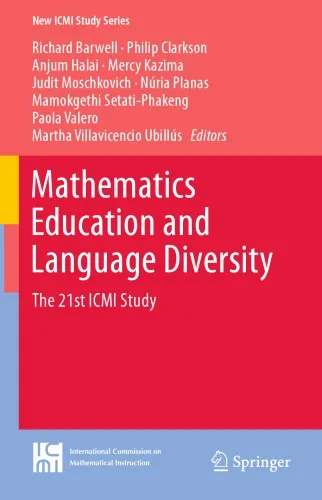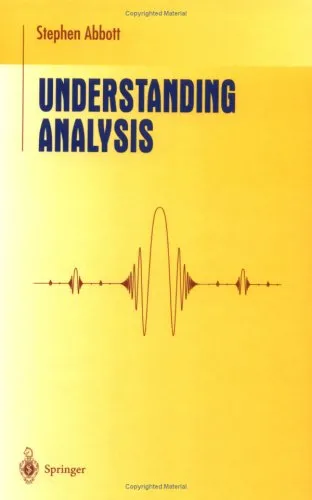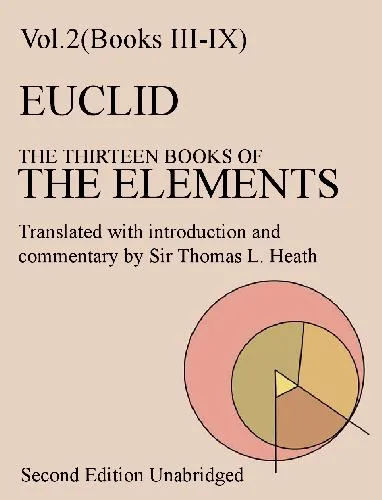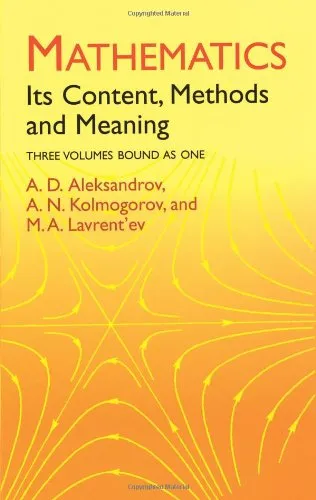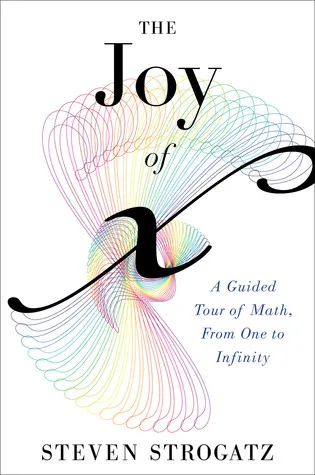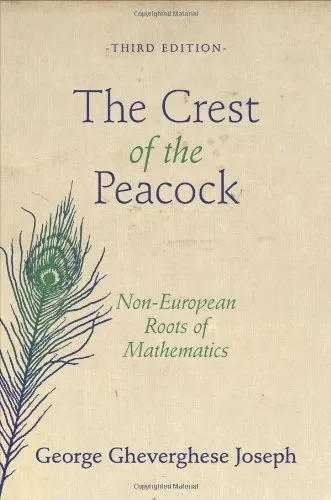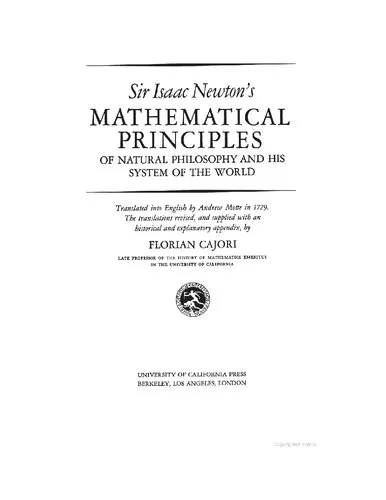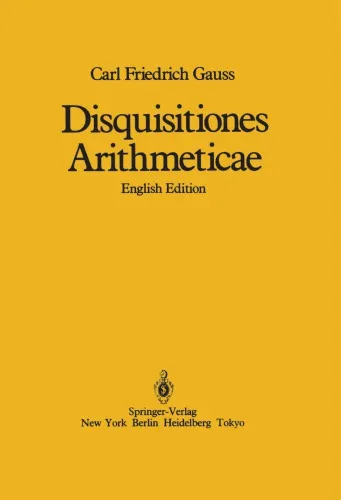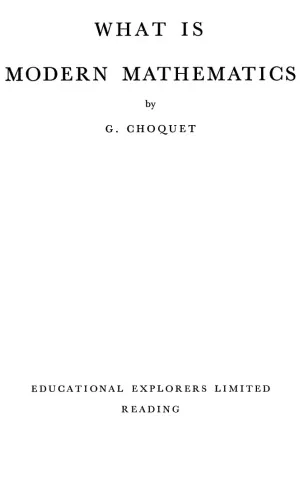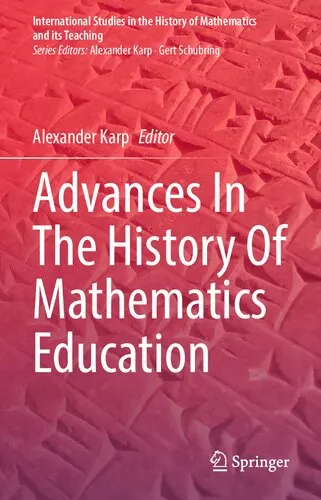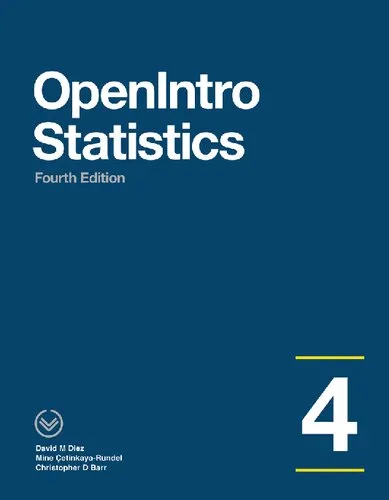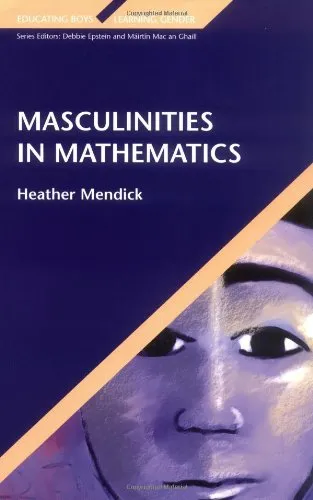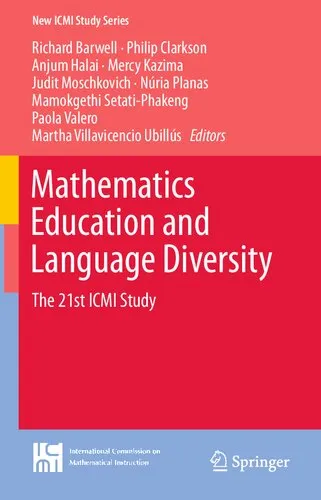Mathematics Education and Language Diversity: The 21st ICMI Study
4.5
بر اساس نظر کاربران

شما میتونید سوالاتتون در باره کتاب رو از هوش مصنوعیش بعد از ورود بپرسید
هر دانلود یا پرسش از هوش مصنوعی 2 امتیاز لازم دارد، برای بدست آوردن امتیاز رایگان، به صفحه ی راهنمای امتیازات سر بزنید و یک سری کار ارزشمند انجام بدینکتاب های مرتبط:
معرفی کتاب: 'Mathematics Education and Language Diversity: The 21st ICMI Study'
کتاب 'Mathematics Education and Language Diversity: The 21st ICMI Study' اثری جمعی است که به کاوش در تقاطع ریاضیات و تنوع زبانی پرداخته است. این کتاب حاصل همکاری گروهی از پژوهشگران برجسته بینالمللی است که در تلاش هستند تا چالشها و فرصتهای موجود در تدریس ریاضیات در بافتهای زبانی متنوع را بررسی کنند. هدف اصلی این کتاب، بازاندیشی و بازشناسی نقش زبان در آموزش ریاضیات و پیشنهاد راهکارهای عملی برای بهبود کیفیت این آموزش است.
خلاصهای جامع از کتاب
این کتاب در هفت بخش اصلی به بررسی موضوعات مرتبط با آموزش ریاضیات و تنوع زبانی میپردازد. برخی از موضوعات کلیدی پوشش داده شده عبارتاند از: تأثیر زبانهای مادری در درک مفاهیم ریاضی، چگونگی ادغام چندزبانگی در کلاسهای ریاضی، نقش متون ریاضی و گفتمانهای کلاسی، و چالشهای سیاستگذاری آموزشی در جوامع چندزبانه.
هر یک از فصلهای این کتاب، مطالعات دقیق و عمیقی را ارائه میدهند که از روشهای کمی و کیفی بهره میبرند. این مطالعات به تحلیل چگونگی استفاده از زبان برای انتقال مفاهیم پیچیده ریاضی میپردازند و بر نقش معلمان، دانشآموزان و دیگر ذینفعان در این فرآیند تأکید میکنند. همچنین، این کتاب بر چگونگی تأثیر تنوع زبانی بر عدالت آموزشی و دسترسی برابر دانشآموزان به فرصتهای یادگیری متمرکز است.
نکات کلیدی
- شواهدی از این که زبانهای مادری میتوانند به عنوان منابعی غنی در یادگیری مفاهیم پیچیده ریاضی مورد استفاده قرار گیرند.
- اهمیت گفتمانهای کلاسی و نحوه استفاده از زبان برای ارتقای مشارکت مؤثر دانشآموزان در حل مسئلههای ریاضی.
- چگونگی طراحی سیاستهای آموزشی که به نیازهای چندزبانه دانشآموزان پاسخ دهند و عدالت آموزشی را ارتقا بخشند.
- راهبردهایی برای معلمان جهت کار با دانشآموزان در جوامع چندزبانه در راستای یادگیری مفاهیم ریاضی.
جملات بهیادماندنی از کتاب
"Providing equitable mathematics education in multilingual settings requires active engagement with the linguistic diversity of students."
"Mathematics is not a culturally neutral subject; language and culture shape the way we conceptualize and teach mathematical ideas."
"Recognizing and valuing students' linguistic repertoires can transform classrooms into inclusive learning spaces."
چرا این کتاب اهمیت دارد
این کتاب در زمان مخاطب قرار دادن مسائلی به عمل آمده که اغلب در آموزش ریاضی نادیده گرفته میشوند: تنوع زبانی دانشآموزان و تأثیر آن بر یادگیری ریاضیات. در جهانی که هر روزه بیشتر به سوی جهانیشدن پیش میرود، اهمیت این مسائل دوچندان شده است. با در نظر گرفتن واقعیت چندزبانه بودن جوامع، این کتاب ابزارها و بینشهایی را برای تبدیل آموزش ریاضی به تجربهای عادلانهتر و کارآمدتر ارائه میدهد.
همچنین، این کتاب نقطه تلاقی بین نظریه و عمل است، چرا که با ارائه توصیههای کاربردی مبتنی بر پژوهشهای قوی به معلمان، سیاستمداران و پژوهشگران کمک میکند تا یادگیری مؤثرتر و جامعتری را امکانپذیر سازند. تمرکز بر عدالت آموزشی، استفاده از زبان به عنوان یک ابزار توانمندساز، و ارائه چارچوبهای نوآورانه برای بهبود سیاستهای آموزشی، این کتاب را به یکی از آثار برجسته در حوزه آموزش ریاضیات تبدیل کرده است.
Introduction to "Mathematics Education and Language Diversity: The 21st ICMI Study"
"Mathematics Education and Language Diversity: The 21st ICMI Study" is an essential contribution to the field of mathematics education, exploring the multifaceted relationship between language and mathematics in multilingual contexts. Edited by a group of internationally renowned mathematics education researchers, including Richard Barwell, Philip Clarkson, Anjum Halai, Mercy Kazima, Judit Moschkovich, Núria Planas, Mamokgethi Phakeng, Paola Valero, and Martha Villavicencio Ubillús, this book reflects collaborative insights from researchers and practitioners worldwide.
The book arises from the need to better understand the role of language diversity in mathematics learning and teaching, particularly in today’s globalized world where multilingual and multicultural classroom environments are increasingly prevalent. It examines challenges, opportunities, and strategies for addressing the diversity of languages and linguistic practices in mathematics classrooms. By situating mathematics education within a linguistically diverse framework, the authors provide valuable perspectives that challenge conventional approaches while opening up new pedagogical horizons.
Detailed Summary of the Book
This volume delves into the connections between mathematics education and language diversity from a variety of angles, including theoretical frameworks, empirical research, and practice-oriented perspectives. The book is organized around the following themes:
- Theoretical foundations: The exploration of how language is intertwined with mathematical thinking and learning.
- Classroom-based research: Case studies from around the world demonstrating the interplay of language and mathematics in multilingual classrooms.
- Policy and curriculum implications: How education systems can adapt to address language diversity in mathematics education.
- Educator perspectives: Challenges and strategies identified by teachers and educators working in linguistically diverse settings.
Throughout the text, the editors and contributing authors make a strong case for the importance of addressing language diversity as a central component of mathematics education. The book offers insights into both the complexity of multilingual mathematics classrooms and the creative possibilities for leveraging students’ linguistic resources to support learning.
Key Takeaways
- Language as a resource: Language diversity can serve as a pedagogical tool to enrich mathematics learning rather than being viewed as a barrier.
- Conceptual understanding: Multilingual approaches can deepen students' conceptual understanding of mathematical concepts.
- Teacher preparation: Educators need training to navigate linguistic complexities and to use effective strategies in multilingual classrooms.
- Global insights: Lessons from diverse cultural and linguistic contexts can inform educational practices on a global scale.
- Equity and inclusion: Addressing language diversity helps in creating equitable and inclusive mathematics learning environments for all students.
Famous Quotes from the Book
"Acknowledging and leveraging students’ linguistic repertoires is not just a matter of inclusion but a pedagogical necessity to uncover deeper mathematical understanding."
"Mathematics is not a universal language—it is entangled with the cultures and languages that give it meaning in different contexts."
Why This Book Matters
This book is a crucial resource for mathematics educators, policymakers, and researchers working in a world characterized by increasing linguistic and cultural diversity. It highlights pressing issues related to language in mathematics education, emphasizing equity and inclusion in ways that resonate with global educational challenges.
With its multidisciplinary approach and contributions from experts across the globe, the book raises awareness about the pivotal role of language in shaping mathematical understanding. It provides actionable recommendations to enhance teaching practices and foster equitable learning opportunities for students who navigate multiple languages. As multilingualism becomes the norm in classrooms worldwide, the insights from this book are indispensable for advancing both research and practice in mathematics education.
In a world striving for educational equity and excellence, "Mathematics Education and Language Diversity: The 21st ICMI Study" is a guiding light for creating inclusive, equitable, and innovative mathematics education for students of all linguistic backgrounds.
دانلود رایگان مستقیم
شما میتونید سوالاتتون در باره کتاب رو از هوش مصنوعیش بعد از ورود بپرسید
دسترسی به کتابها از طریق پلتفرمهای قانونی و کتابخانههای عمومی نه تنها از حقوق نویسندگان و ناشران حمایت میکند، بلکه به پایداری فرهنگ کتابخوانی نیز کمک میرساند. پیش از دانلود، لحظهای به بررسی این گزینهها فکر کنید.
این کتاب رو در پلتفرم های دیگه ببینید
WorldCat به شما کمک میکنه تا کتاب ها رو در کتابخانه های سراسر دنیا پیدا کنید
امتیازها، نظرات تخصصی و صحبت ها درباره کتاب را در Goodreads ببینید
کتابهای کمیاب یا دست دوم را در AbeBooks پیدا کنید و بخرید
1407
بازدید4.5
امتیاز0
نظر98%
رضایتنظرات:
4.5
بر اساس 0 نظر کاربران
Questions & Answers
Ask questions about this book or help others by answering
No questions yet. Be the first to ask!
